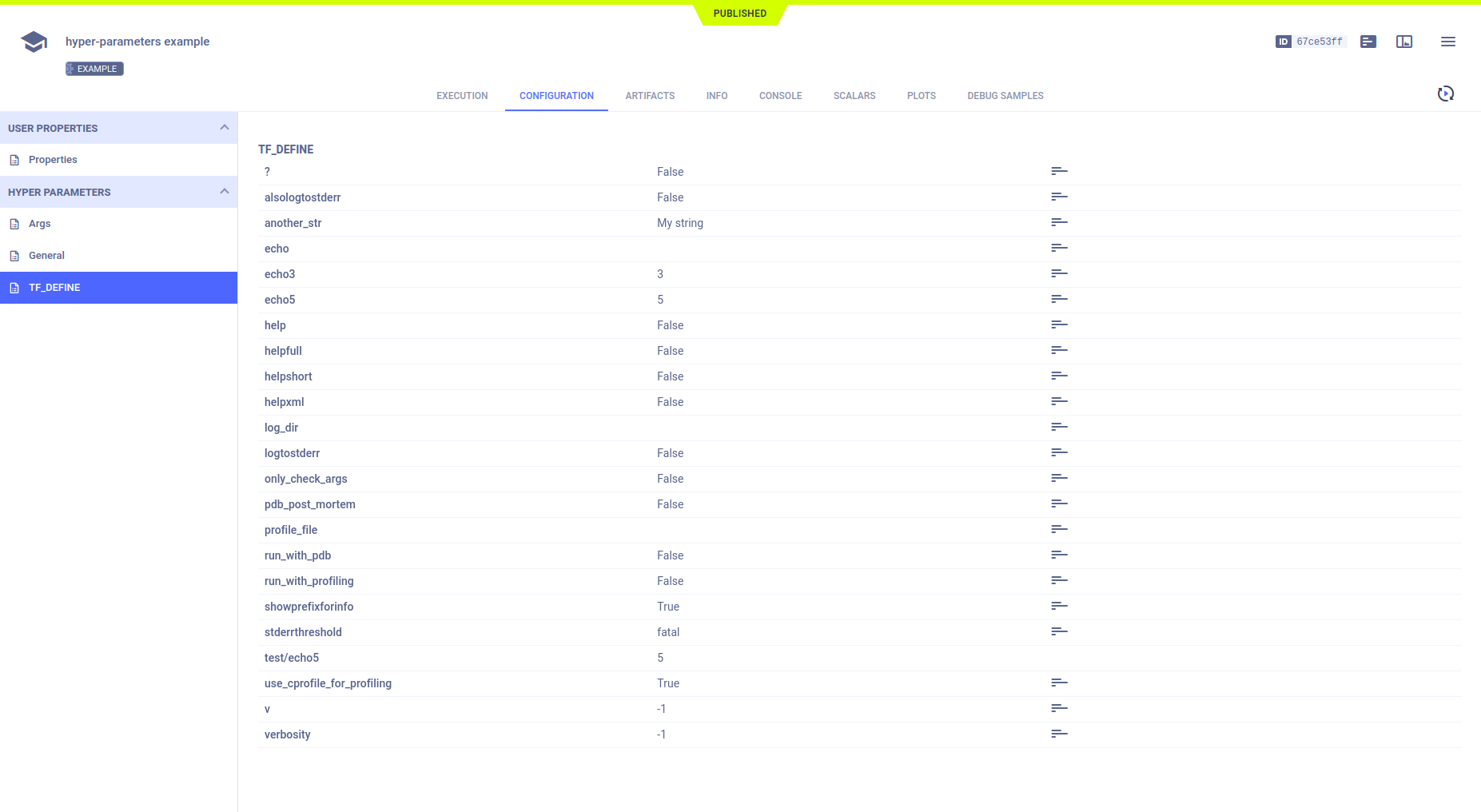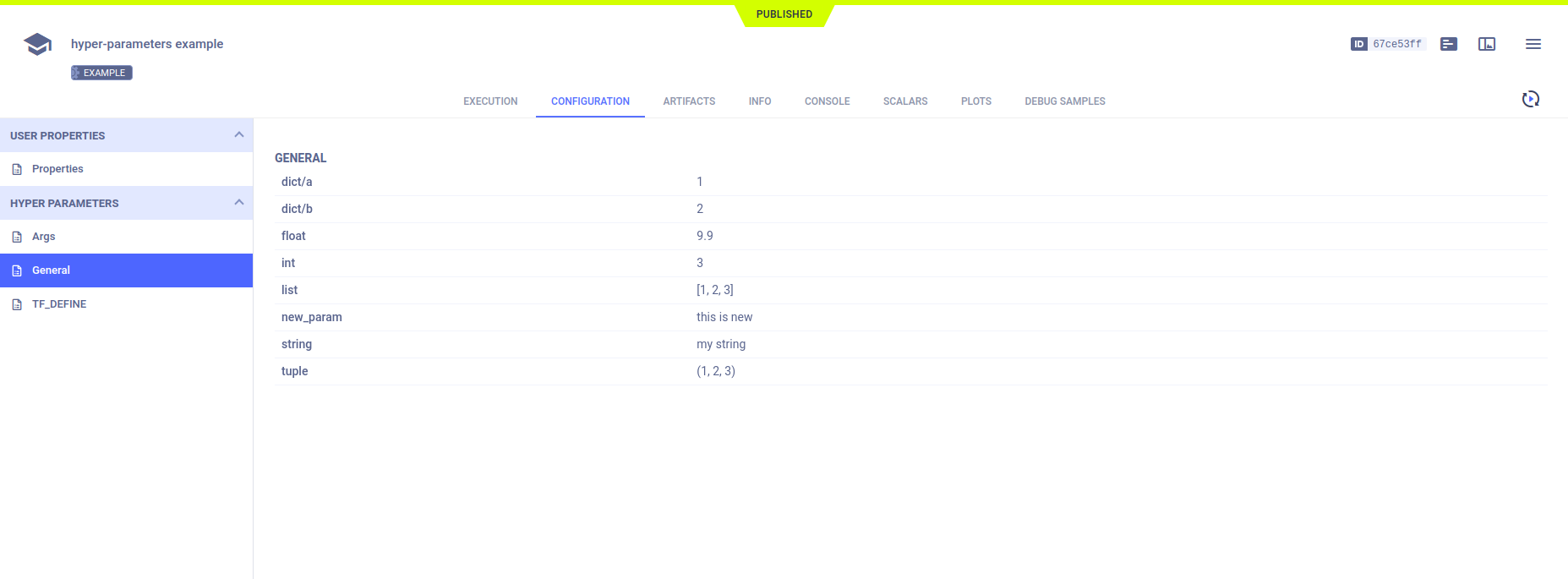Hyperparameters Reporting
The hyper_parameters.py example script demonstrates:
- ClearML's automatic logging of
argparsecommand line options and TensorFlow Definitions - Logging user-defined hyperparameters with a parameter dictionary and connecting the dictionary to a Task.
Hyperparameters appear in the web UI in the experiment's page, under CONFIGURATION > HYPERPARAMETERS.
Each type is in its own subsection. Parameters from older experiments are grouped together with the argparse command
line options (in the Args subsection).
When the script runs, it creates an experiment named hyper-parameters example in the examples project.
Argparse Command Line Options
If a code uses argparse and initializes a Task, ClearML automatically logs the argparse arguments.
parser = ArgumentParser()
parser.add_argument('--argparser_int_value', help='integer value', type=int, default=1)
parser.add_argument(
'--argparser_disabled', action='store_true', default=False, help='disables something'
)
parser.add_argument('--argparser_str_value', help='string value', default='a string')
args = parser.parse_args()
Command line options appears in HYPERPARAMETERS > Args.

TensorFlow Definitions
ClearML automatically logs TensorFlow Definitions, whether they are defined before or after the Task is initialized.
flags.DEFINE_string('echo', None, 'Text to echo.')
flags.DEFINE_string('another_str', 'My string', 'A string', module_name='test')
task = Task.init(project_name='examples', task_name='hyperparameters example')
flags.DEFINE_integer('echo3', 3, 'Text to echo.')
flags.DEFINE_string('echo5', '5', 'Text to echo.', module_name='test')
TensorFlow Definitions appear in HYPEPARAMETERS > TF_DEFINE.

Parameter Dictionaries
Connect a parameter dictionary to a Task by calling the Task.connect
method, and ClearML logs the parameters. ClearML also tracks changes to the parameters.
parameters = {
'list': [1, 2, 3],
'dict': {'a': 1, 'b': 2},
'tuple': (1, 2, 3),
'int': 3,
'float': 2.2,
'string': 'my string',
}
parameters = task.connect(parameters)
# adding new parameter after connect (will be logged as well)
parameters['new_param'] = 'this is new'
# changing the value of a parameter (new value will be stored instead of previous one)
parameters['float'] = '9.9'
Parameters from dictionaries connected to Tasks appear in HYPERPARAMETERS > General.
